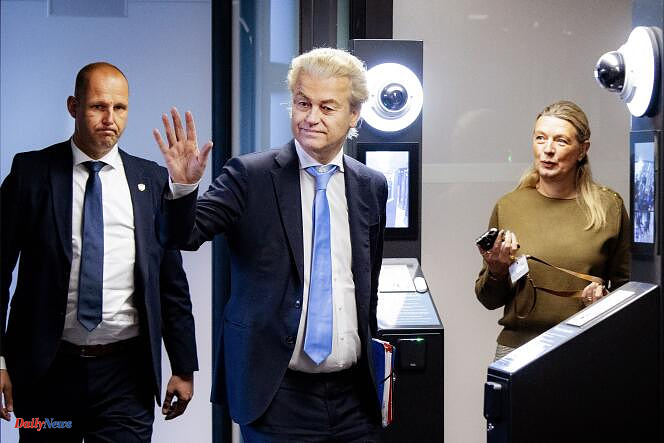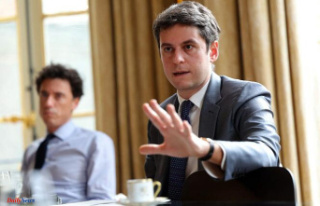Geert Wilders will not be prime minister. The Islamophobic leader of the Dutch far right (Freedom Party, PVV) gave up on Wednesday March 13 to form a government, failing to gain the support of the parties with whom he was negotiating.
“I can only become prime minister if ALL parties in the coalition support me. This is not the case. I would like to [form] a right-wing cabinet. Less asylum and immigration. The Dutch in 1. The love of my country and the voter is great and more important than my own position", he wrote on X, almost four months after the parliamentary elections, when he regularly expressed his wish to lead the country after the big victory of his party.
Dutch media previously reported a breakthrough in negotiations that could pave the way for an “extra-parliamentary” government or apolitical experts. Its exact composition has yet to be defined, but the leaders of the four parties in talks – including Mr Wilders – should, in this scenario, remain MPs.
The members of the government should be appointed by the political parties: they could be recruited from within the ranks of the parties in the broad sense, or even from outside the political environment, according to the press.
“Good” and “intense” discussions
In the highly fragmented Dutch political system, where no party is strong enough to govern alone, the announcement of the results generally marks the start of months of negotiations. Geert Wilders had initially tried to bring together a government majority with the liberal VVD party, the agricultural party BBB and the centrist New Social Contract (NSC) party, but the leader of the NSC, Pieter Omtzigt, abruptly withdrew from the negotiations, citing the dismal state of Dutch public finances.
Mr. Omtzigt had previously expressed concerns about Mr. Wilders' manifesto, a climate-sceptical and Islamophobic text, which notably advocates banning mosques and the Koran, as well as leaving the European Union. The departure of the champion of the fight against corruption had sowed uncertainty regarding the formation of the government. The daily Algemeen Dagblad then described these talks as a “catastrophe waiting to happen”.
Kim Putters, a former Labor senator later appointed to oversee the talks, managed to bring the leaders of the four warring parties back to the negotiating table. Political parties are ready to take a “next step” in forming a government, he declared on Tuesday, after two days of “good” and “intense” discussions. He is due to submit a report on Thursday.
The outgoing Prime Minister, Mark Rutte, is handling current affairs while awaiting the formation of a new government, but he is also the favorite to lead NATO. The mandate of Jens Stoltenberg, current Secretary General of the Alliance, ends on October 1. Since the elections, voting intentions in favor of the PVV have only increased.












